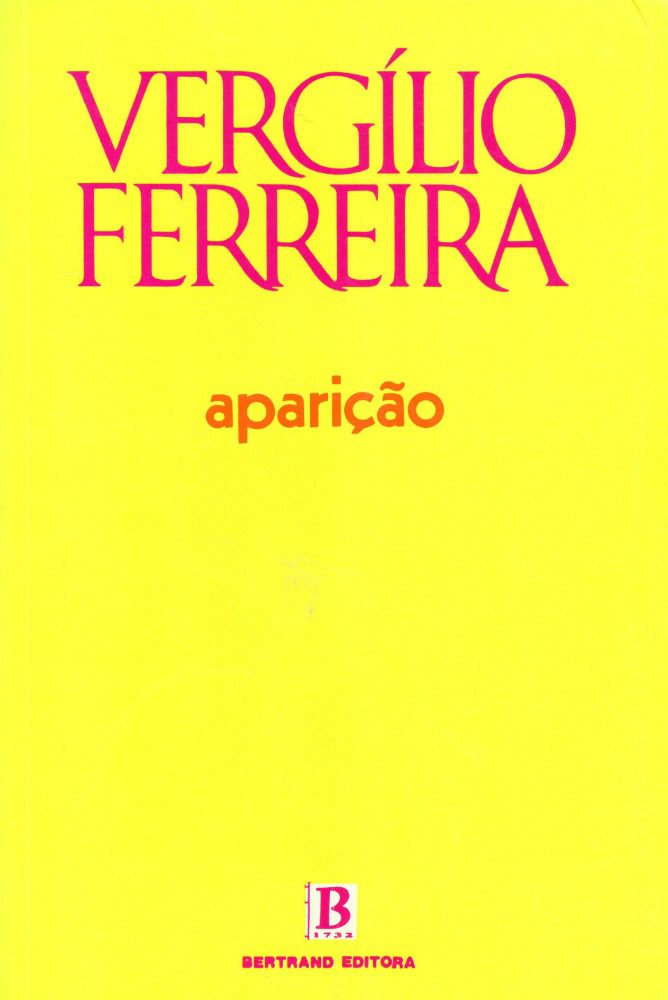Title: Aparição
Author: Vergílio Ferreira
First published January 1, 1959
273 pages, Paperback
Rating: 3.67
Overview
Aparição, a philosophical novel by Vergílio Ferreira, is a thought-provoking exploration of existentialism, narrated in the first-person perspective. The story follows the protagonist as he sits in an empty room, reminiscing about his past.
As the warm summer moonlight pours in through the balcony, illuminating a vase of flowers on the table, he reflects on the faint whispers of life and the vague memories of his origins. Aparição is a hauntingly beautiful tale that will leave readers pondering the deeper meaning of existence.
About the Author
Vergílio Ferreira was born on January 28, 1916 in Gouveia. He was a seminarian in Fundão and later earned a degree in Classical Philology from the University of Coimbra.
He worked as a high school teacher in Faro, Bragança, Évora, and Lisbon (since 1959). He was a fiction writer and thinker, making his debut with the novel “O Caminho Fica Longe” (1943) and the essay “Sobre o Humanismo de Eça de Queirós” (1943).
He was one of the most representative writers of Portuguese literature in the second half of the 20th century, and his life was steeped in the labyrinth of Sartrean existentialism. Some of his notable works include “Manhã Submersa” (1954), adapted to film by Lauro António and winner of the Femina Prize for the best translated book in France in 1990, “Aparição” (1959, Camilo Castelo Branco Prize), “Cântico Final” (1960), “Alegria Breve” (1965, Casa da Imprensa Prize), “Nítido Nulo” (1971), “Rápida a Sombra” (1974), “Signo Sinal” (1979), “Para Sempre” (1983, Lisbon Literary Prize), “Espaço do Invisível” (1965-87), in four volumes, “Até ao Fim” (1987, APE Grand Prize for Novel and Romance), “Em Nome da Terra” (1990), and “Na Tua Face” (1993, APE Grand Prize for Novel and Romance).
Notable publications also include the diary “Conta Corrente,” published from 1981, and the volume of essays “Arte Tempo” (1988). In 1991, he won the Europália Prize for his body of work, and in 1992, he was awarded the Camões Prize.
He was decorated by the Presidency of the Republic with the Grand-Officer of the Order of Saint James of the Sword in 1979, and in 1985, he was nominated for the Nobel Prize in Literature. He passed away in Lisbon on March 1, 1996.
Editoral Review
“Aparição” by Vergílio Ferreira is a classic work of Portuguese literature that was first published in 1959. The author, Ferreira, was a renowned Portuguese novelist, essayist, and professor of philosophy who wrote extensively on existential themes.
“Aparição” is a novel that explores the existential struggles of its main character, João da Ega, and his journey towards self-discovery.
Set in Lisbon in the 1950s, “Aparição” follows João da Ega, a young writer who is struggling to find his place in the world. He is torn between his desire to pursue his artistic passions and his sense of duty towards society.
Along the way, he encounters a cast of characters who represent different facets of Portuguese society, from the wealthy elite to the working class.
Ferreira’s writing style is characterized by its introspective and philosophical nature. He delves deep into the psyche of João da Ega, exploring his innermost thoughts, fears, and desires.
The novel is also rich in symbolism and allegory, with themes of alienation, identity, and the search for meaning woven throughout.
One of the strengths of “Aparição” is Ferreira’s masterful character development. João da Ega is a complex and multifaceted character, and Ferreira does an excellent job of bringing him to life on the page.
The supporting cast of characters is also well-drawn, each representing a different aspect of Portuguese society and adding depth and nuance to the story.
Another strength of the novel is its evocative setting. Ferreira paints a vivid picture of Lisbon in the 1950s, capturing the city’s unique atmosphere and culture.
The descriptions of the city’s architecture, streets, and people are rich and detailed, transporting the reader to another time and place.
However, “Aparição” is not without its flaws. The novel can be slow-paced at times, with long passages of introspection that may not appeal to all readers.
Additionally, the novel’s focus on existential themes may not resonate with everyone.
Overall, “Aparição” is a beautifully written novel that explores important existential themes. Ferreira’s masterful character development and evocative setting make for a compelling read.
While the novel may not be for everyone, those who appreciate introspective and philosophical literature will find much to enjoy here.
I would recommend “Aparição” to fans of Portuguese literature, as well as to readers who enjoy introspective and philosophical works. The novel’s themes of identity, alienation, and the search for meaning are universal and relevant to readers of all backgrounds.
On a scale of 1-10, I would give “Aparição” an 8 for its masterful character development, evocative setting, and exploration of important existential themes.



